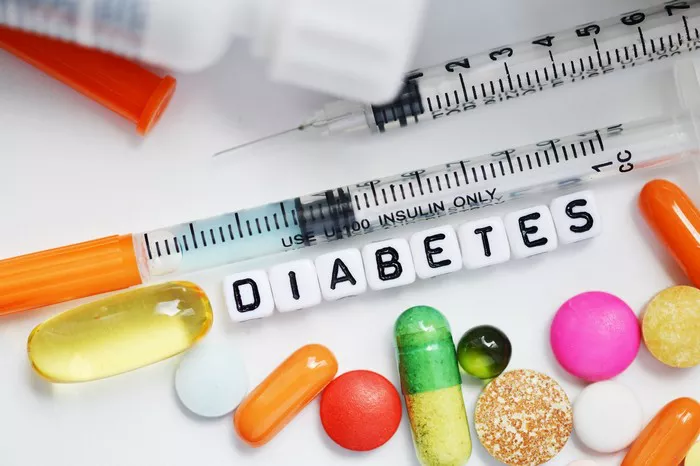Managing blood sugar levels is a vital aspect of maintaining overall health, particularly for individuals with diabetes or those at risk of developing the condition. While medication and insulin therapy play crucial roles in controlling blood sugar, dietary choices can also have a significant impact on glucose levels. In this comprehensive guide, we explore the diverse array of foods that can help lower blood sugar quickly and effectively within the comfort of your home.
Understanding Blood Sugar Regulation
Blood sugar, or blood glucose, refers to the concentration of glucose present in the bloodstream. Glucose is the body’s primary source of energy, derived from the digestion of carbohydrates in the diet. However, maintaining blood sugar within a healthy range is essential for optimal physiological function.
When blood sugar levels rise after a meal, the pancreas releases insulin, a hormone that helps transport glucose from the bloodstream into cells, where it can be utilized for energy or stored for later use. In individuals with diabetes or insulin resistance, this process may be impaired, leading to elevated blood sugar levels and potential complications.
The Role of Diet in Blood Sugar Management
Diet plays a crucial role in blood sugar management, as certain foods can cause rapid spikes or dips in glucose levels. Choosing foods that have a minimal impact on blood sugar can help stabilize levels and promote overall metabolic health. Key dietary strategies for lowering blood sugar include:
1. Choosing Low-Glycemic Index (GI) Foods: The glycemic index is a measure of how quickly a carbohydrate-containing food raises blood sugar levels. Foods with a low GI are digested and absorbed more slowly, resulting in gradual increases in blood glucose and improved glycemic control. Examples of low-GI foods include non-starchy vegetables, legumes, whole grains, and nuts.
2. Prioritizing Fiber-Rich Foods: Dietary fiber plays a crucial role in blood sugar regulation by slowing down the absorption of glucose and promoting satiety. High-fiber foods, such as fruits, vegetables, whole grains, and legumes, can help stabilize blood sugar levels and reduce the risk of insulin resistance and type 2 diabetes.
3. Incorporating Protein and Healthy Fats: Protein and healthy fats can help slow down the digestion and absorption of carbohydrates, leading to more stable blood sugar levels. Including sources of lean protein, such as poultry, fish, tofu, and legumes, as well as healthy fats from avocados, nuts, seeds, and olive oil, can help balance meals and prevent postprandial glucose spikes.
4. Limiting Added Sugars and Refined Carbohydrates: Foods high in added sugars and refined carbohydrates, such as sugary beverages, desserts, white bread, and processed snacks, can cause rapid increases in blood sugar levels. Limiting these foods and opting for healthier alternatives can help maintain more stable glucose levels.
Foods That Lower Blood Sugar Quickly at Home
1. Non-Starchy Vegetables: Non-starchy vegetables, such as leafy greens, broccoli, cauliflower, bell peppers, and cucumbers, are low in calories and carbohydrates, making them ideal choices for lowering blood sugar quickly. These vegetables are rich in fiber, vitamins, minerals, and antioxidants, which can help improve insulin sensitivity and promote overall metabolic health.
2. Leafy Greens: Leafy greens, including spinach, kale, Swiss chard, and collard greens, are particularly beneficial for lowering blood sugar due to their high fiber content and low glycemic index. These nutrient-dense greens are rich in vitamins A, C, and K, as well as magnesium, potassium, and antioxidants, which support blood sugar regulation and reduce inflammation.
3. Berries: Berries, such as strawberries, blueberries, raspberries, and blackberries, are packed with fiber, vitamins, minerals, and antioxidants, making them excellent choices for lowering blood sugar quickly. Despite their natural sweetness, berries have a relatively low glycemic index, meaning they cause minimal spikes in blood glucose when consumed in moderation.
4. Legumes: Legumes, including beans, lentils, chickpeas, and peas, are rich in fiber, protein, and complex carbohydrates, making them valuable additions to a blood sugar-lowering diet. The soluble fiber found in legumes helps slow down the absorption of glucose and improve insulin sensitivity, while the protein content promotes satiety and helps stabilize blood sugar levels.
5. Nuts and Seeds: Nuts and seeds, such as almonds, walnuts, chia seeds, and flaxseeds, are nutrient-dense foods that can help lower blood sugar quickly and promote overall metabolic health. Rich in healthy fats, protein, and fiber, nuts and seeds help slow down the digestion and absorption of carbohydrates, leading to more stable blood glucose levels.
6. Greek Yogurt: Greek yogurt is a protein-rich dairy product that can help lower blood sugar quickly when consumed as part of a balanced meal or snack. The protein and fat content in Greek yogurt helps slow down the absorption of carbohydrates, preventing rapid spikes in blood glucose. Additionally, Greek yogurt contains probiotics, which may have beneficial effects on gut health and insulin sensitivity.
7. Cinnamon: Cinnamon is a popular spice with potent antioxidant and anti-inflammatory properties, as well as potential benefits for blood sugar regulation. Studies have shown that cinnamon may help improve insulin sensitivity, reduce fasting blood sugar levels, and lower postprandial glucose spikes. Adding cinnamon to foods and beverages or taking cinnamon supplements may help lower blood sugar quickly and effectively.
8. Apple Cider Vinegar: Apple cider vinegar has been touted for its potential health benefits, including its ability to lower blood sugar levels. Some research suggests that apple cider vinegar may improve insulin sensitivity and reduce postprandial glucose spikes when consumed before meals. However, more studies are needed to confirm its efficacy and optimal dosage for blood sugar management.
Conclusion
Maintaining stable blood sugar levels is essential for overall health and well-being, particularly for individuals with diabetes or those at risk of developing the condition. By incorporating a variety of nutrient-dense foods into your diet, such as non-starchy vegetables, leafy greens, berries, legumes, nuts, seeds, Greek yogurt, cinnamon, and apple cider vinegar, you can help lower blood sugar quickly and effectively at home. Additionally, focusing on low-glycemic index foods, fiber-rich choices, and balanced meals can further support blood sugar regulation and promote metabolic health. By making informed dietary choices and prioritizing nutrient-dense foods, you can take control of your blood sugar levels and optimize your overall health and well-being.

























